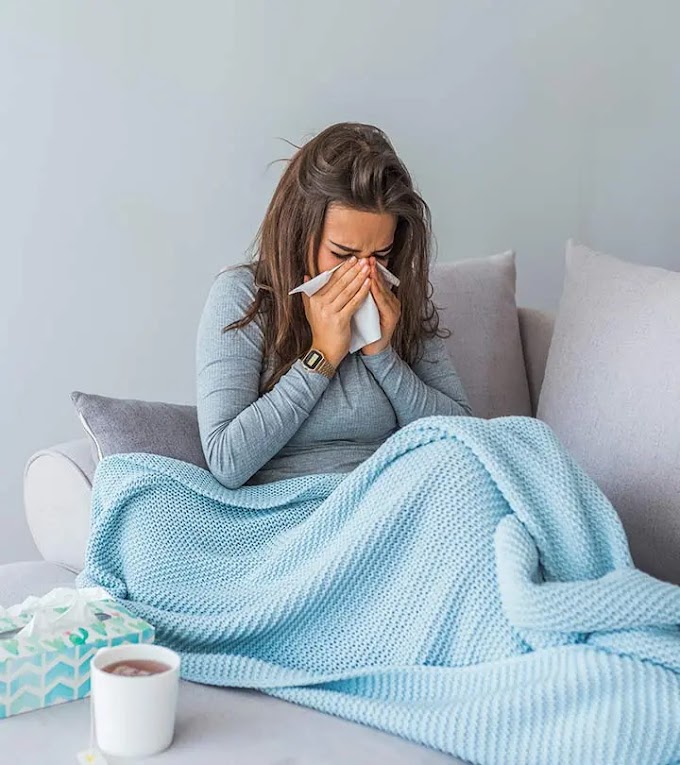Debunking Coronavirus Myths – Facts To Set The Record Straight
The rapid-fire spread of the coronavirus worldwide is making numerous people fear. With a lot of misinformation around the internet, fear is gripping around. Major infection symptoms of COVID-19 include cough, watery nose, fever, and briefness of breath (in extreme cases). Scientifically inaccurate information through colorful online media is spooking people worldwide. In this composition, we've debunked myths related to coronavirus complaint to help you understand the verity. Take a look.
1 MYTH Coronavirus is no more dangerous than the seasonal flu.
While it's true that the symptoms of coronavirus are no worse than those of seasonal flu, its mortality rate is advanced. While the seasonal flu kills lower than 1 of those infected, the WHO has verified that3.4 of the reported COVID-19 cases have failed encyclopedically (as of March 4, 2020). So, yes, any flu-suchlike symptoms you witness at this point do need to be addressed a bit more seriously.
2 MYTH Coronavirus only kills aged people, so youngish people and kiddies don't need to worry.
The mortality rate of COVID-19 increases with age. It ranges between0.2-0.4 between the periods of 0 to 49 and steadily increases thereon. It peaks at14.8 among people who are 80 times old. While it's true that aged people and people withered-existing health conditions are more vulnerable to this complaint, anyone of any age can get infected. Also, it can beget some serious respiratory problems, anyhow of your age or health condition.
Another thing to keep in mind is that there are certain groups of people who are more susceptible to coronavirus, similar as healthcare workers and the immediate family members/ caregivers taking care of infected people in close diggings. Thus, youthful and healthy people need to report symptoms and follow counterblockade instructions precisely to cover the more vulnerable members of the society and help the complaint from spreading.
3 MYTH You need to wear a face mask.
This is incompletely true. A contagion can enter your body through your eyes, and aerosols ( bitsy contagion patches) can access face masks. Still, they can block the driblets from someone coughing or sneezing near you. The driblets are actually a major way that coronavirus is transmitted.
Still, the US Centers for Disease Control and Prevention (CDC) states that there are only two groups of people who are recommended to wear face masks
1. Cases People who have the coronavirus and/ or are showing symptoms should wear them to help spreading it to others.
2. Corers Healthcare and social workers who are taking care of COVID-19 cases or spend long ages in a sanitarium should wear masks to cover themselves from infection. Family members/ caregivers taking care of cases also fall under this order.
Buying face masks when you do nit fall into these orders increases deficit and leads to price hikes. This puts the healthcare workers and cases who actually need them and all the people around them at threat.
Also, US Surgeon General. Jerome Adams has said that people who aren't healthcare providers and do n's know how to wear face masks duly tend to touch their faces more, which can actually increase the spread of coronavirus.
4 MYTH You need to be around an infected person for 10 twinkles to get infected.
Though medical guidelines for the flu state that you need to be within 6 bases of an infected person (who sneezes and/ or coughs) for at least 10 twinkles to get infected, you can get infected by the coronavirus through shorter relations. You can also pick up the contagion from defiled shells. Hence, make sure you wash and sanitize your hands as frequently as possible.
5 MYTH A vaccine will be ready within a many months.
Though a coronavirus vaccine is being developed and experimented on beast models, testing it on humans to spot all side goods and making it commercially available will take much longer. In fact, it would be quick if we got it within a time. The stylish course of action right now is to help it from spreading.
6 MYTH Home remedies can cure/ help coronavirus.
While garlic, water, and vitamin C are great for your health, consuming them won't cure or cover you from coronavirus. Other similar “ remedies” making the rounds on social media are that covering your body with sesame canvas, chlorine, or alcohol can kill the contagion, which isn't true.












0 Comments